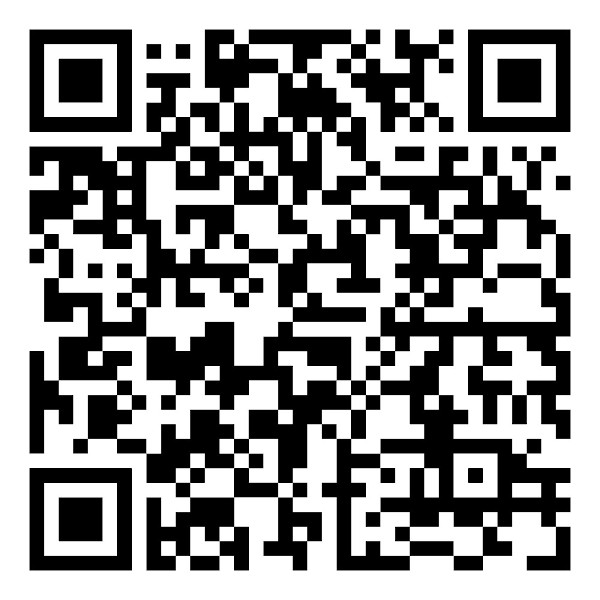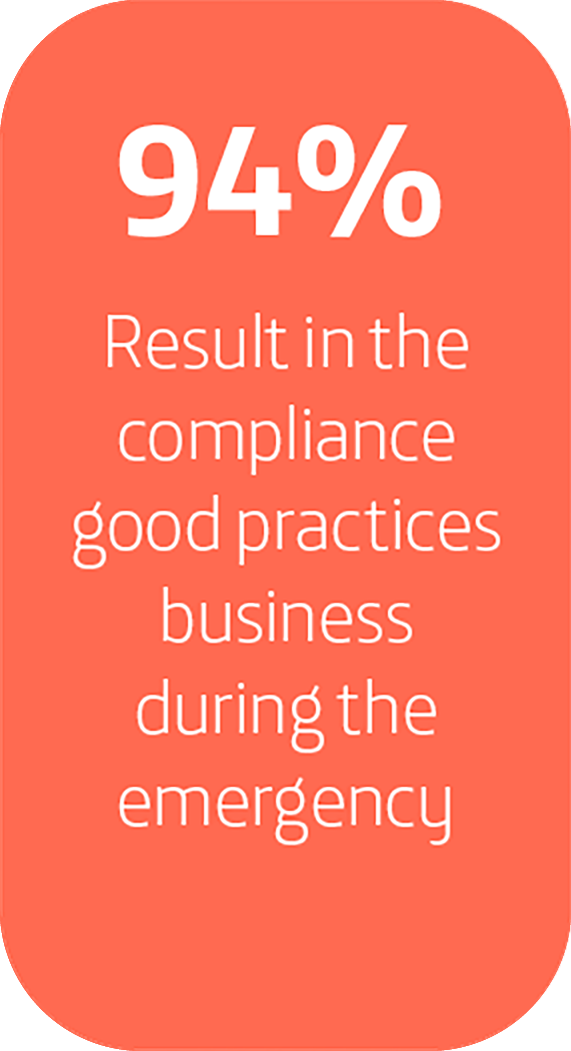Responsible Management Report 2020
7.4.6. We reconnect by acting with integrity and leading by example
E
S
G
(GRI 102-16)
Integrity and transparency
The Responsible Business Principles (PNR, for the Spanish original) are the guidelines, standards and behaviors that must guide the daily action of our employees, suppliers and business partners. They are the basis to generate and establish a relationship of trust with all of the Company’s stakeholders. Business partners and suppliers must adopt the PNR or their own equivalent principles that ensure compliance with them.
Additionally, the Company has regulations including the Anti-Corruption Policy, the Conflict of Interest Regulation, the Anti-Money Laundering and Counter Terrorism Financing (AML/CTF) Self-Control and Management Policy, and the Public Entity Relations Regulation. Together with the commitment to the Global Compact (Principle 10 - Businesses should work against corruption in all its forms, including extortion and bribery)and SDG 16 (Promote just, peaceful and inclusive societies), these regulations demonstrate that management of integrity and transparency is important for the Company.
Communication and training on
anti-corruption policies
and procedures
(GRI 205-2)
As part of Telefónica Movistar’s Compliance Management System, it has a training and awareness-raising program that includes continuous communications with content about the internal regulations on integrity, such as the Anti-Corruption Policy, the Public Entity Relations Regulation, the Conflict of Interest Management Regulation, and the procedures that regulate them. During 2020, these standards and procedures were communicated and disclosed to employees through the Communication and Awareness Program of the Compliance Officer - Management, with more than 50 communications generated through mass communication tools, such as the compliance mailbox, workplace and intranet.
In compliance with the Anti-Corruption Policy and the Corporate Regulation on Certifications of Anti-Corruption Guidelines, 100% of the Board members and the Company’s executives signed the anti-corruption certificate, which declares their knowledge and commitment to its application, as well as the other rules on integrity.
Regarding anti-corruption, in addition to the creation of the Responsible Business Principles, in which 96% of employees have passed the course
El 100% de los miembros de la Junta Directiva y de los directivos de la Compañía suscribieron el certificado anticorrupción, donde hacen constar su conocimiento y compromiso con su aplicación, así como de las demás normas en materia de Integridad.
on the SuccessFactors platform, there is specific mandatory online training about the United States Foreign Corrupt Practices Act (FCPA). This training is designed for specific areas of the organization that potentially have a greater exposure to the risk of corruption, and include the Steering Committee, executives, pre-executives and professionals of target areas. Specifically, the training has been assigned to 1,617 employees, of which 1,186 had been certified at December 31, 2020, comprising 73%.
100% of the Board members and the Company’s executives signed the anti-corruption certificate, which declares their knowledge and commitment to its application, as well as the other rules on integrity.
96%
of collaborators they overcome the course in the platform Success Factors
1,186
Employees certificates
as of December
31, 2020
In response to the changes generated during 2020 and the use of new technologies because of the global COVID-19 pandemic, three trainings on compliance with AML/CTF were held in the year for key staff in the management of these risks, as part of the compliance programs on the AML/CTF Self-Control and Management System, the recommendations and communications of the local regulators and of the Financial Action Task Force of Latin America (GAFILAT, for the Spanish original), as well as in response to the prevention program that aims to increase security in the supply chain. Meanwhile, training was provided to the employees of 25 experience centers throughout the country on integrity at Movistar, giving special importance to the Responsible Business Principles, the Anti-Corruption Policy, the Public Entity Relations Regulation and the Conflict of Interest Regulation.
Three trainings on compliance with AML/CTF were held in the year for key staff in the management of these risks, as part of the compliance programs.
Likewise, 100% of the suppliers and business partners committed o comply with the anti-corruption laws and standards through the business agreements and the anti-corruption certificate that they sign when they start working with the Company. During 2020, 1,587 anti-Corruption certificates were signed.
Additionally, through the consultation and under the principles of objectivity and reasonableness, the Compliance Officer - Management responded to 246 inquiries and dilemmas posed by employees regarding the interpretation of the internal regulations on integrity.
Likewise, 100% of the suppliers and business partners committed to comply with the anti-corruption laws and standards through the business agreements and the anticorruption certificate that they sign when they start working with the Company.
Five Star Acknowledgment Program
This program aims to acknowledge employees who demonstrate commitment to the Company’s values and exceptional performance in integrity, privacy and/or security, which in turn, contribute value to the development of their professional activity. Giving continuity to the program, the local 2020 selection process was carried out, based on the previously established criteria for each topic. The Company received 20 nominees, from which the three local “Five Stars” were selected.
Management of inquiries and reports
(GRI 102-17)
The Company has an internal inquiry and reporting channel, which is also available for external stakeholders, as well as a telephone line to receive them.
All employees have a reporting channel available to them, through which they can report any information about the existence of a possible irregularity or an illegal act or breach of internal regulations. These also include possible irregularities in accounting, matters regarding audits and/or aspects related to internal control on financial reporting in compliance with Section 301 of the United States Sarbanes-Oxley, Act and other requirements in this respect. The reporting channel is governed by the principles of confidentially, respect and foundation, and it has been designed so that if the complainant wishes, they can make the report anonymously.
Likewise, as of December 2020, the Company has made access to the reporting channel available to third parties, which was previously only accessed through the Responsible Business Channel.
A total of 21 reports were received through the reporting channel in 2020, categorized as follows:
- Unfounded: 10-48%
- Founded: 6-29%
- Dismissed: 3-14% for not having sufficient information
- Under analysis: 2-10%
As a result of the investigations during said year, six reports were categorized as founded. Out of the closed investigations, it can be concluded that there were two cases due to inappropriate/undue conduct, one due to internal fraud, another due to external fraud and another due to work conditions.
It is important to highlight that for the founded reports, the Company took the respective disciplinary and corrective measures in each process. The measures adopted in response to the founded reports included four terminations of the work contract and one reminder of obligations.
According to the zero-tolerance policy for corruption, bribery and discrimination, the Company has specific controls for the detection and correction of possible cases. This is materialized in the adoption of disciplinary measures and/or contract terminations.
1,587
certificates
anticorruption
validated during 2020
Employees
The mechanisms available to employees to access the reporting channel are:
- Intranet
- Email: canal.denuncias.co@telefonica.com
- Cellphone number: 3184989314
- Free phone line from any part of the country: 018009345712
Third parties
The mechanisms available to third parties to access the reporting channel are:
The measures adopted in response to the founded reports included four terminations of the work contract and one reminder of obligations.
Operation
- The reporting channel has an investigation process focused on efficacy, management, security and ease of use, which records how the process progresses, the conclusion reached, and the disciplinary action or measures taken.
- It is a reliable channel, which maintains anonymity and credibility, without retaliation or confrontation, and with arguments and protection of the complainant.
- The way in which the investigation is developed and the possible changes in the Company after discovering the results are communicated assertively.
Anti-Corruption Commitment for Businesses
The Company participates in the Anti-Corruption Commitment of Transparencia por Colombia for Businesses. In 2020, said entity carried out the Case Study on the Reporting Channel of Telefónica Movistar as an anti-corruption mechanism. Additionally, it actively participated in the strategic line of the Survey on Business Corruption Risk Management.

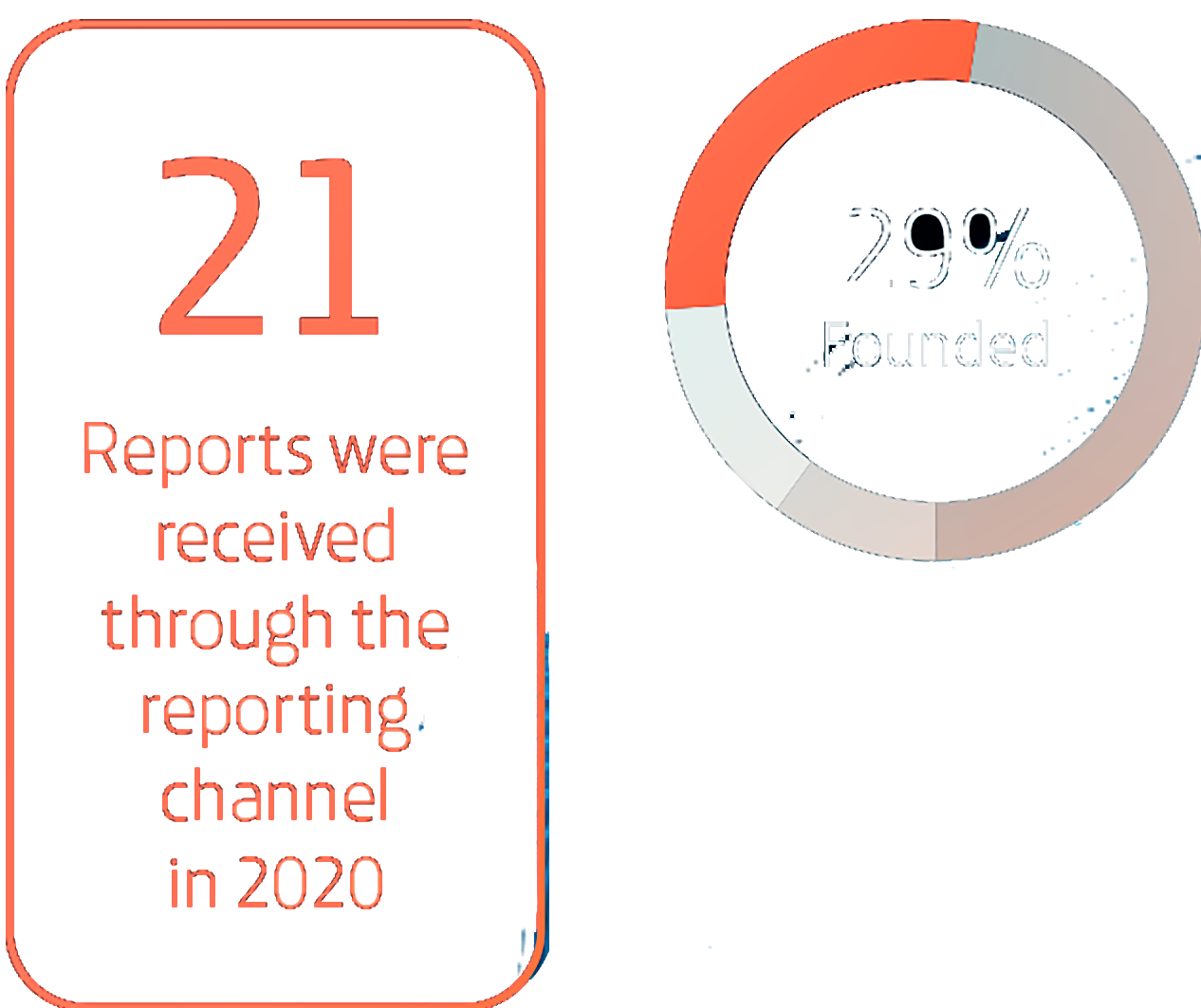
Conflicts of interest
Adding to the governance chapter, employees must also report conflicts of interest. The Compliance Office is responsible for assessing the situation declared by each employee (with the opinion of their immediate supervisor) and can request specific certifications from certain executives or other employees so that they declare the conflicts of interest that could apply to them.
Other mechanisms for the prevention of money laundering and terrorism financing risks
Pursuant to the legal provisions, the Company reported suspicious and attempted transactions to the Financial Analysis and Reporting Unit (UIAF, for the Spanish original). Additionally, it strengthened the existing prevention program through the update of the ML/TF risk matrix and the adoption of the best practices required in the Company’s supply chain processes.
Preventive Compliance Model
Under the prevention framework of the compliance function, the Company made progress in the implementation of the Preventive Compliance Model, which aims to ensure the control environment for the observance of legal obligations related to the management of items such as organization and governance, policies and procedures, training processes, monitoring and reporting, technology tools and other specific instruments that support the control environment, as well as specific standards applicable for the defined topics.
Corporate Anti-Corruption Practices
In 2020, the Company participated in the call for proposals of the Global Compact Network Colombia and Alliance for Integrity on Corporate Anti-Corruption Practices, nominating the management of conflict of interest and corruption risks. Both practices were selected and they are available to be consulted in the publication.
Business Transparency Survey (MTE, for the Spanish original)
At the end of 2007, with the voluntary participation of a group of leading companies of the public services sector –including Telefónica Movistar–, Transparencia por Colombia designed a tool to foster ethics and transparency in companies’ governance and management. In 2020, the Company conducted the survey again to have a diagnostic of its management of transparency and to define the respective action plans, and it achieved a low risk of corruption.
Free and fair competition
(GRI 206-1)
In a social market economy model like the Colombian one, the correct operation of the market, mainly founded in the free and fair economic competition between its different agents, aims to increase the efficiency of the companies and achieve greater innovation and research and development, as well as more and better offers of goods and services at more affordable prices. With this vision, the rules on free and fair competition establish prohibitions for the market agents and with them, the rules of conduct under which they need to compete for the consumers’ choice.
Recognizing the above, in 2020, all the necessary actions were carried out to ensure compliance with the regime of free competition and business integrations, which is reflected in the fact that to date,
no disciplinary action has been taken against the Management 2020Company due to anti-competitive behavior or anti-trust practices.
Pursuant to the above, there was no pending or completed administrative investigation in 2020 against the Company due to anti-competitive behavior or anti-trust practices.
In terms of legal proceedings due to anti-competitive behavior, the decision of an extraordinary appeal is pending. This was filed by the complainant in 2019 with the Supreme Court of Justice, taking into account that the appeal filed by the parties was ruled in favor of Colombia Telecomunicaciones S.A. E.S.P. by the Bogotá Court, which resolved to not to fully meet the requests of the complainant, considering that the events did not promote anti-competitive behavior. Consequently, in 2020, there was no ruled sentence against the Company for anti-competitive behavior.
Human rights
The materiality exercise shows the importance of human rights in the internal processes and those related to the supply chain, taking into account that Telefónica Movistar’s activities have a direct impact on the stakeholders’ exercise of these rights.
Different actions were carried out in 2020, which aimed to strengthen the management and monitoring of the implementation of due diligence described in the United Nations Guiding Principles on Business and Human Rights, which establish the responsibility of companies in their operations with respect to human rights, preventing, mitigating or responding to the negative impacts they have on them.
Following said principles, human rights management was covered under the commitment in the subject established in the Responsible Business Principles and the Human Rights Policy. However, 2020 was a year that revolutionized the perspective of all the stakeholders toward them as a result of the COVID-19 health emergency. Under this coverage and context, human rights management focused on the following points:
Improving communication with the stakeholders on human rights management
The internal and external communication channels were constantly used to share some of the main strategies developed under the approach of due diligence in human rights, in which those related to gender equity, equality and no discrimination, community relations, and occupational health and safety stand out.
As a result of the digital transformation accelerated by the health emergency, human rights management in the digital environment was improved, raising awareness on key issues, such as privacy, personal data protection, and ethical and responsible use of technology and AI, through the disclosure of Telefónica’s New Digital Pact and Artificial Intelligence Principles.
As well as the communication channels, Movistar participated in different national and international events, where it disclosed the management carried out during the year. The following of which stand out: UN Fifth Regional Forum on Business and Human Rights and the UN Global Compact Leaders Summit.
Review and update of the human rights risks
The human rights risks were reviewed and updated, applying the Corporate Risk Management Manual. The main risks identified related to the development of the Company’s and its suppliers’ operations were: 1) network rollout, 2) conditions of products and services, 3) use and management of data and new technologies related to artificial intelligence, and 4) new work models and conditions.

As a result of the digital transformation accelerated by the health emergency, human rights management in the digital environment was improved.
Like in previous years, the indicators for monitoring the management of these risks were their impact and likelihood of occurrence, with the following results:
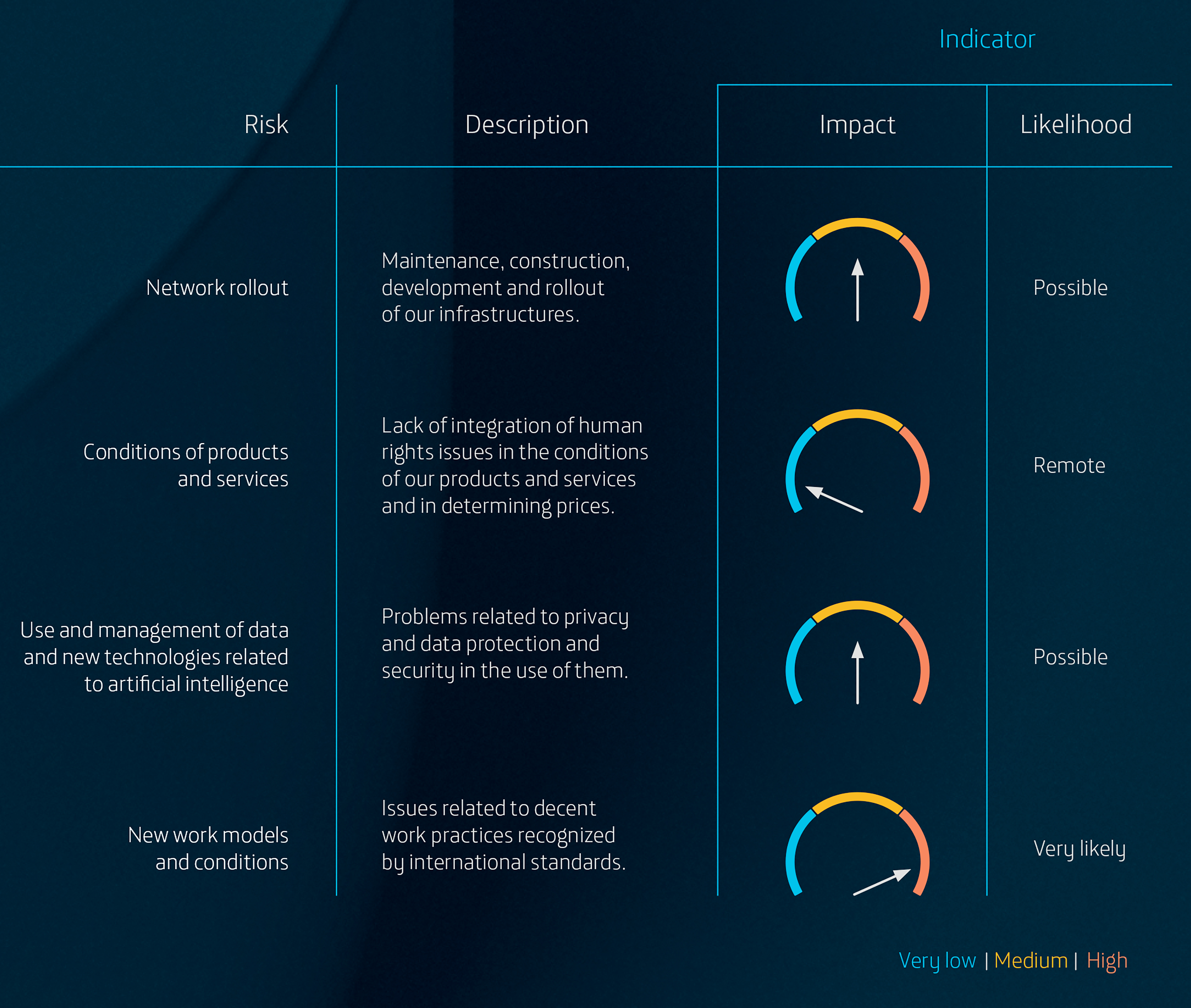

The health emergency’s greatest impact was in risk scenario 4, because as it is related to decent work and occupational health and safety practices, it was necessary to consider the possibility of contagion of COVID-19 between the employees and the suppliers’ staff who had to carry out their work in person. To prevent and mitigate this risk, a work plan was designed and implemented, which included the constant monitoring of symptoms;
the design, communication and implementation of protocols for action based on the authorities’ biosafety recommendations; the provision of biosafety items to staff; and the adaption of the experience centers according to the parameters established by the Colombian Government and the local authorities, as applicable.
Application of practical tools to measure human rights management
For the second year in a row, the self-diagnostic tool of Guías Colombia was applied to identify the management breaches in the inclusion of the human rights approach in the Company’s mechanism to respond to complaints and grievances. The diagnostic demonstrated 90% progress in the implementation of the actions recommended by Guías Colombia on the topic, as well as the application to the Company’s mechanism.
The Company also applied the VenCER tool, designed by Guías Colombia to assess human rights management during the COVID-19 health emergency, achieving a result of 94% in compliance with good business practices during the emergency.
Improvement of the incorporation of the human rights approach in the operating complaints and grievances mechanism.
The monitoring of complaints about civil works unrelated to the service was continued in 2020 with the aim to ensure that the responses to the complaints, grievances and requests received by the channel were aligned with the type of impact on human rights and the solutions provided to the reported situations, which will be provided within the established maximum legal term. During the year, the main situations reported were related to situations resulting from the network rollout.
Participation in Guías Colombia.
Together with this initiative, Movistar published its first case study on how it has implemented good practices of decent work, where it especially mentioned these practices during the emergency. (See case study via the QR code.) The study was launched at the initiative’s annual event, together with the Community Relations Guide. Additionally, the Company supported and assisted Guías Colombia in the launch of the VenCER tool.


